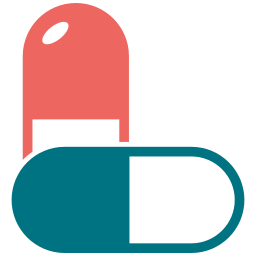Unit Price: ৳ 13.00 (5 x 6: ৳ 390.00)
Cariprazine is an atypical antipsychotic indicated for:
- Treatment of schizophrenia in adults
- Acute treatment of manic or mixed episodes associated with bipolar I disorder in adults
- Treatment of depressive episodes associated with bipolar I disorder (bipolar depression) in adults
- Adjunctive therapy to antidepressants for the treatment of major depressive disorder (MDD) in adults
The mechanism of action of cariprazine is unknown. However, the efficacy of cariprazine could be mediated through a combination of partial agonist activity at central dopamine D2 and serotonin 5-HT1A receptors and antagonist activity at serotonin 5-HT2A receptors. Cariprazine forms two major metabolites, desmethylcariprazine (DCAR) and didesmethylcariprazine (DDCAR), that have in vitro receptor binding profiles similar to the parent drug.
Strong CYP3A4 inhibitors: Reduce VRAYLAR dosage by half.
CYP3A4 inducers: Concomitant use is not recommended.
- Schizophrenia: extrapyramidal symptoms and akathisia
- Bipolar mania: extrapyramidal symptoms, akathisia, dyspepsia, vomiting, somnolence, and restlessness
- Bipolar depression: nausea, akathisia, restlessness, and extrapyramidal symptoms
- Adjunctive treatment of MDD: akathisia, restlessness, fatigue, constipation, nausea, insomnia, increased appetite, dizziness, and extrapyramidal symptoms
There is a pregnancy exposure registry that monitors pregnancy outcomes in women exposed to Cariprazine during pregnancy. Lactation studies have not been conducted to assess the presence of cariprazine in human milk, the effects on the breastfed infant, or the effects on milk production.
Cerebrovascular Adverse Reactions in Elderly Patients with Dementia-Related Psychosis: Increased incidence of cerebrovascular adverse reactions (e.g., stroke, transient ischemic attack).
Neuroleptic Malignant Syndrome: Manage with immediate discontinuation and close monitoring.
Tardive Dyskinesia: Discontinue if appropriate.
Late-Occurring Adverse Reactions: Because of Cariprazine long half- life, monitor for adverse reactions and patient response for several weeks after starting Cariprazine and with each dosage change.
Metabolic Changes: Monitor for hyperglycemia/diabetes mellitus, dyslipidemia and weight gain.
Leukopenia, Neutropenia, and Agranulocytosis: Perform complete blood counts (CBC) in patients with pre-existing low white blood cell counts (WBC) or history of leukopenia or neutropenia. Consider discontinuing Cariprazine if a clinically significant decline in WBC occurs in absence of other causative factors.
Orthostatic Hypotension and Syncope: Monitor heart rate and blood pressure and warn patients with known cardiovascular or cerebrovascular disease, and risk of dehydration or syncope.
Seizures: Use cautiously in patients with a history of seizures or with conditions that lower the seizure threshold.
Potential for Cognitive and Motor Impairment: Use caution when operating machinery.
Pediatric Use: Safety and effectiveness in pediatric patients have not been established. Pediatric studies of Cariprazine have not been conducted. Antidepressants increased the risk of suicidal thoughts and behaviors in pediatric patients.
Geriatric Use: Clinical trials of Cariprazine did not include sufficient numbers of patients aged 65 and older to determine whether or not they respond differently from younger patients. In general, dose selection for an elderly patient should be cautious, usually starting at the low end of the dosing range, reflecting the greater frequency of decreased hepatic, renal, or cardiac function, and of concomitant disease or other drug therapy.
Keep below 30°C temperature, away from light & moisture. Keep out of the reach of children.
Alternative Brand Names
Unit Price: ৳ 22.00 (5 x 6: ৳ 660.00)


